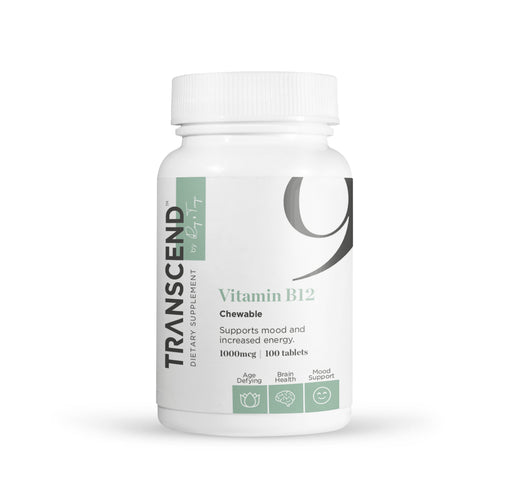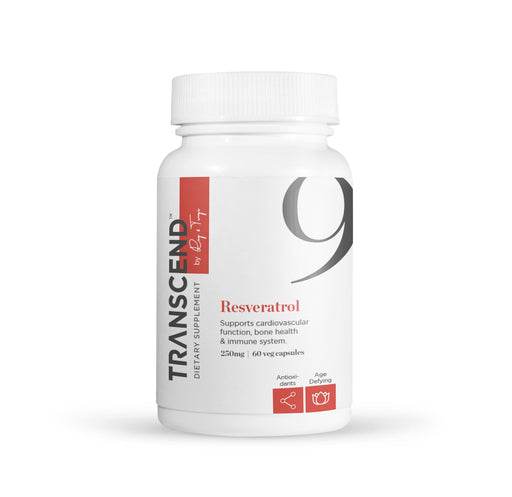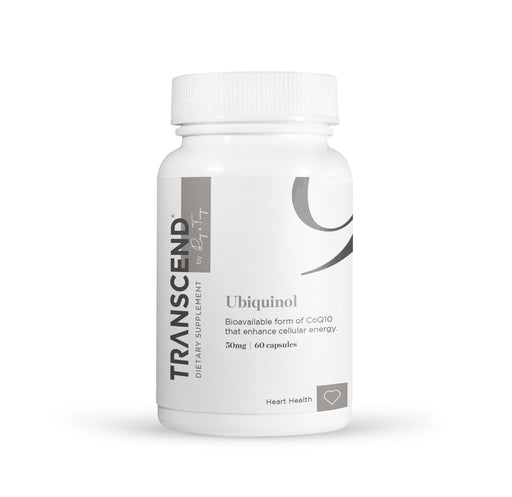
Vitamin B-12, Sublingual
Increased energy Improve mood Fight fatigue Common deficiency Better absorption Vitamin B12 (also called cobalamin) is one of eight water-solu...
View full details
In a recent Q&A with Singularity University graduates, Ray Kurzweil was asked if his thoughts on life extension had changed since writing The Singularity Is Near in 2005. At that time most people weren’t familiar with artificial intelligence or the idea of humans merging with technology. So, much of the book was dedicated to convincing people that these were valid concepts. Today, seventeen years later, the accelerating pace of technology and the growing power of AI are widely accepted. The biotechnology revolution has arrived and has begun to radically change the way medical problems are solved. As these concepts become reality, the question of whether we want to live forever is becoming less theoretical and more real. Here is an excerpt from that conversation.
Singularity University Class of 2009 Reunion
Q&A with Ray Kurzweil
In the Metaverse
April 15, 2022
Q: Have your thoughts on life extension changed?
RK: No. In fact we're now applying AI to life extension. We're actually simulating biology, so we can now do tests with simulated biology. Take the Moderna vaccine for example. They actually tested several billion different mRNA sequences and found ones that could create a vaccine. They did this in three days and that was the vaccine. They then spent ten months testing it on humans, but it never changed. It remained the same and it's the same today. Ultimately, we won't need to test on humans. We will be able to test on a million simulated humans which will be much better than testing on a few hundred real humans. And we’ll do it in a few days. We'll be able to actually simulate every possible antidote to any problem. We’ll go through every single problem and come up with solutions very quickly and test them very quickly. We’ll achieve this by the end of this decade. We're going to be able to go through all the different problems that exist in medicine. The way that we've been doing it -- testing with humans -- takes years. And when scientists come up with a new idea, it takes years more to test. Now we can actually test them all, every single possible solution, very quickly. That’s coming now. We saw some of that with the Moderna vaccine.
Q: But medicine doesn't seem to adapt to that. As you say the vaccine was developed before the lockdowns even began. It wasn't deployed until… well, probably two million people would be alive if we had had the knowledge that we could deploy that vaccine immediately, which is quite a large number. Medicine doesn't change its practices and styles nearly as quickly as technology changes.
RK: Well, some people were skeptical because the vaccine was developed so quickly. But I think we're going to have to get over that. It is good that we had the vaccine otherwise many more people would have died. I’m not saying we're there yet but we are beginning to simulate biology and ultimately we'll find solutions to all the problems we have in medicine using simulated biology. So, we've just begun. I think we'll see that being very prominent by the end of this decade. But people have to want to live forever. If they avoid solutions to problems then they won't take advantage of these advances. So we'll have the opportunity, but that doesn't mean everybody will do it. We have a very large antivax contingent, possibly because it was created so quickly.
----------------
Ray's full Q&A session with Singularity University's Class of 2009 covered a wide range of topics including the current state of AI, three essential things that are needed to create human level AI, groundbreaking medical advancements spurred on by the pandemic, the future of democracy, and Ray's long term vision of intelligence spreading across the universe. You can click on the time stamps below to jump to each question and corresponding answer in the video.
00:07: What are your thoughts the Singularity today, in terms of timing?
01:47: What has surprised you about how tech has developed or how it has impacted society?
04:36: Have your thoughts on life extension changed?
06:46: Medicine hasn’t changed its practices just because technology has advanced though, right?
08:26: What do you feel most optimistic or hopeful about?
09:40: What do you think will be the most promising approaches of AI to pass the Turing Test?
12:34: Do we need a next level breakthrough after deep learning to progress AI to the next level?
14:10: How did the pandemic shift the priority of the future of medicine and other fields?
17:05: What is the most surprising thing to you over the past decade? You said nothing has surprised you, but truly something must have?
20:52: The nature of data models and large data models especially transformer-like models and universal models was touched on earlier. Is it really all about computation? Is the future of innovation all about how many nodes we can throw at a model and ultimately how many dollars we can throw at it?
24:17: What is the impact on the world if all innovation relies on massive data models that are enormously expensive? Does that economic disparity change things?
26:22: What do you think about the future of democracy? Is technology going to help?
28:17: What is the future of humanity in space? When will humanity become a multiplanetary species?

Increased energy Improve mood Fight fatigue Common deficiency Better absorption Vitamin B12 (also called cobalamin) is one of eight water-solu...
View full details
Combat internal aging Protect cells from radiation damage Increase antioxidant capacity Take with lecithin for better absorption Optimal dose for...
View full details
2022 update: Future batches of this product will use a Ubiquinol product that is a greenish capsule rather than a red softgel Bioavailable form o...
View full details
A Kurzweil + Grossman Formula Continued Synergy between Science and Convenience Convenient dosage packets Top anti-aging products Increase energy...
View full details